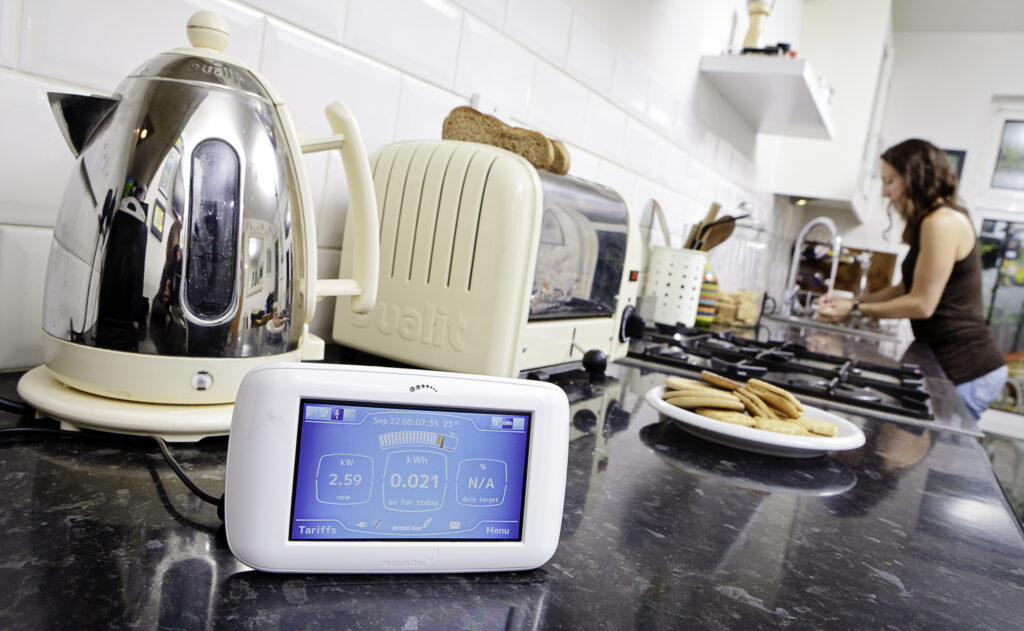Almost one million smart meters in Great Britain’s households are lacking smart functionality, according to the Department for Business, Energy & industrial Strategy (BEIS).
The government today released new figures covering the widely reported roll-out of smart meters across homes and businesses covering the three months to the end of June.
They show that there are now 12 million smart and advanced meters operating in Great Britain, with 10.93 million in place among 26.5 million homes.
However, the quarterly report says that to date 13.55 million smart meters have been installed – 12.51 in domestic properties – by both large and small suppliers.
The discrepancy of 1.58 million between those reported as installed and operational in homes and the figures provided by energy suppliers is said to be down to operational and technical issues, at least partly caused by issues arising when a consumer switches supplier.
The number of smart meters in operation is defined as those that energy suppliers are operating in smart mode. Unless using second generation SMETS2 meters, meters revert to normal, often referred to as ‘dumb’, operating mode when a household switches, thereby losing the advantages provided by a smart meter.
This means that the long-debated interoperability issues of the first generation of smart meters, SMETS1, are slowing GB’s progress in that installed ‘smart’ meters that lose this functionality are taken out of official figures.
However, a spokesperson for BEIS claimed that the way smart meter figures are accounted would also explain some of the mismatch between installed and operational meters.
Small suppliers only report their figures at the end of the reporting year rather than the quarterly updates from large suppliers. If customers switch from these firms to their smaller competitors, the meters no longer count within quarterly updates, although this does not address to loss of smart functionality when such instances occur.
Current± was told that of the 1.58 million installed but unaccounted for, 940,000 are known to not be operating in smart modem, equivalent to around 7.5% of smart meters installed in UK homes.
However, the spokesperson added that the government saw this as a “temporary problem” owing to the role of the Data Communications Company (DCC) established to manage the data and communications network of smart meters.
The DCC is live now and the process of rolling smart meters onto its systems is expected to begin by the end of the year. This will see smart meters operated by the government-backed company rather than relying on the systems of the supplier that installed the individual smart meters which are often lost when switching occurs.
Despite these technological concerns, today’s figures also draw attention to the continuing slow deployment of smart meters
They show that fewer than 1 million smart meters were installed and became ‘operational’ in the three months to the end of June, as the national roll-out continues towards the 2020 deadline.
With 910,000 installed and up and running in Q2 alongside 20,000 non-domestic smart or advanced meters, the total number rose by just 9% compared to the previous quarter.
This is down from a 10% increase between Q4 2017 and the first three months of this year, and down 17% from the rise seen between the previous two quarters. This had been blamed on the bad weather conditions at the start of the year, however the lax growth into the middle of 2018 has exposed the slow progress of the roll-out.
And today’s figures also showed up the gap between installed and ‘smart’ meters with over 1.2 million smart meters installed in households, suggesting that around 339,000 are idle in people’s homes in Q2 alone.
The government has so far resisted calls to extend the smart meter roll-out to 2023 to overcome consumer issues, most notably around the use of first generation SMETS1 meters that lose their smart functionality.
While SMETS2 meters would overcome such problems, they themselves are so far unproven and present technological concerns of their own that, according to MP James Heappey, could further impact consumer confidence in the technology.
The combination of operational issues and slow deployment has led prominent MPs to dub the roll-out as showing all the signs of a car crash.






